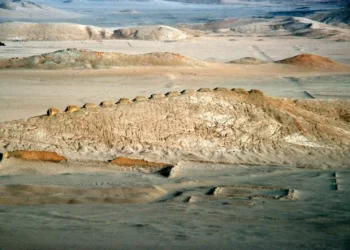The universe is vast, filled with billions of stars and potentially countless planets capable of hosting life. Yet, despite our best efforts to search for extraterrestrial intelligence, we’ve encountered only silence. Could it be that intelligent civilizations are deliberately avoiding us? This idea forms the basis of the intriguing “zoo hypothesis,” a speculative answer to one of humanity’s greatest mysteries.
In the summer of 1950, physicist Enrico Fermi posed a question that has since haunted scientists: “Where is everybody?” Over lunch with colleagues at Los Alamos National Laboratory, Fermi was pondering the growing fascination with UFOs. His question wasn’t about little green men but the conspicuous absence of evidence for extraterrestrial life, given the immense age and scale of the universe.
Earth, after all, is proof that intelligent life can emerge. With over 13 billion years of cosmic history and billions of stars in our galaxy alone, it seems likely that civilizations more advanced than ours should already exist. Yet, there’s no trace—no signals, no alien megastructures, no wandering probes. This puzzling contradiction between high probabilities and zero evidence became known as the Fermi Paradox.
The Zoo Hypothesis: A Cosmic Isolation Strategy?
Among the many theories proposed to solve the Fermi Paradox, the zoo hypothesis stands out as one of the most thought-provoking. It suggests that advanced alien civilizations are not only aware of humanity but are actively avoiding contact. Why? To observe us from afar, much like zookeepers monitor animals in an enclosure.
Supporters of this idea argue that intelligent aliens could easily detect us. Our broadcasts have been leaking into space for decades, and our technological advancements, from peaceful space missions to destructive weaponry, are undeniable. To them, humanity might appear unpredictable or even dangerous—an intelligent species still grappling with its place in the cosmos.
If the hypothesis holds, these alien civilizations might be using advanced technology to mask their presence. This intentional silence could be their way of protecting both themselves and us, giving us the space to evolve without interference. The ultimate goal? Perhaps one day, when humanity has matured, we might be invited to join a larger galactic community.
The zoo hypothesis is captivating but faces criticism for assuming too much about alien motives and behaviors. It presumes not only the existence of multiple advanced civilizations but also a collective agreement to avoid Earth. For now, it remains an interesting thought experiment, one that highlights our persistent desire to answer the age-old question: are we alone?
Ultimately, the only way to resolve the Fermi Paradox is to keep exploring. As our tools and techniques improve, we may one day find the evidence we’ve been seeking—or confirm that solitude is humanity’s unique cosmic condition.











